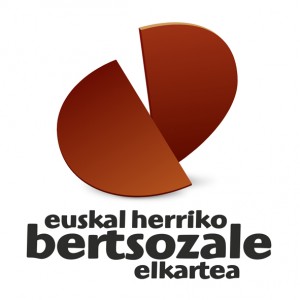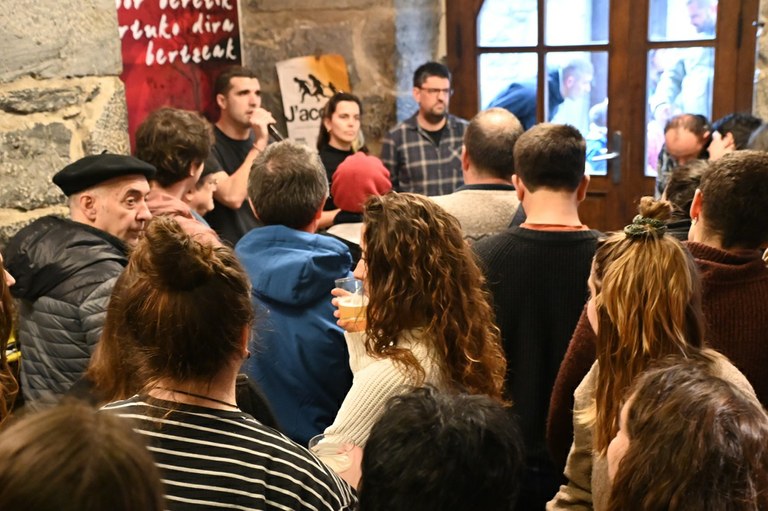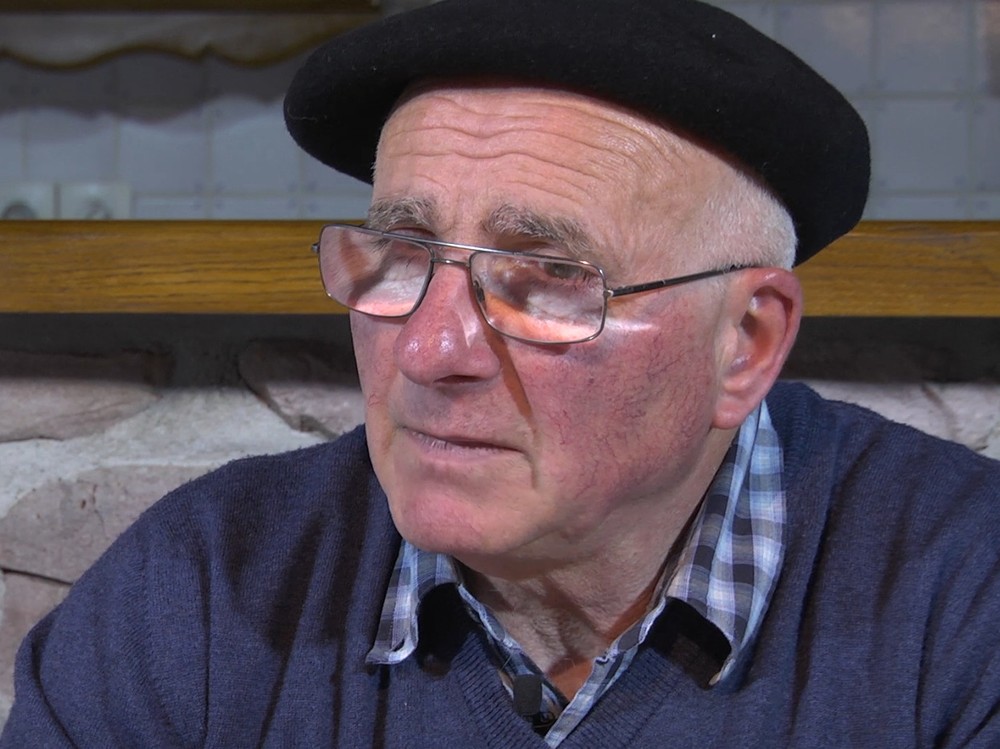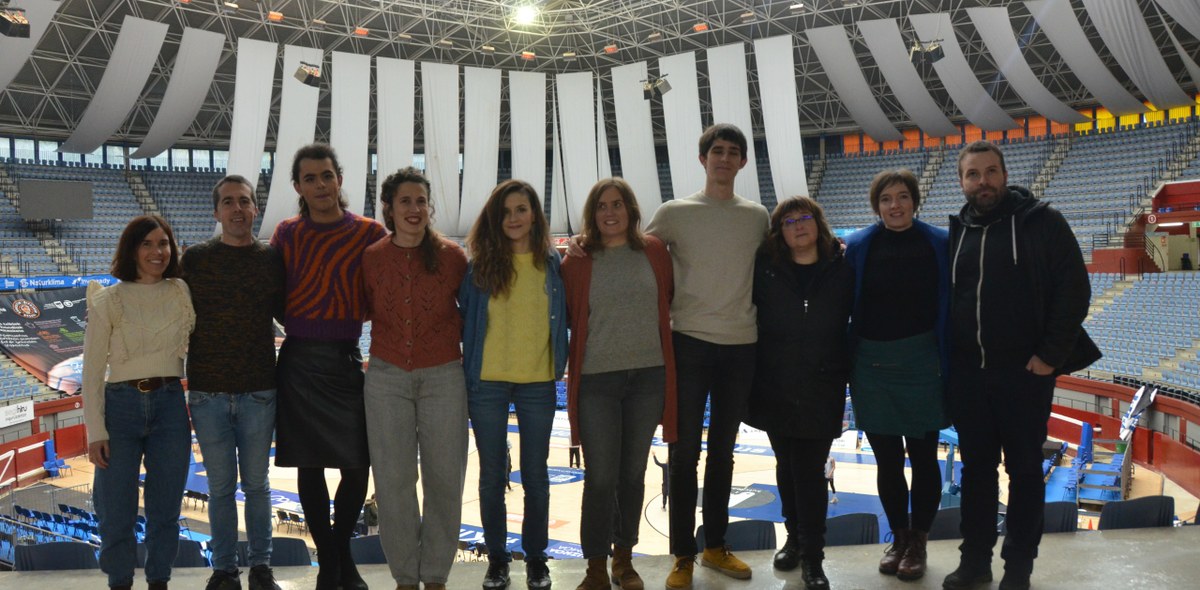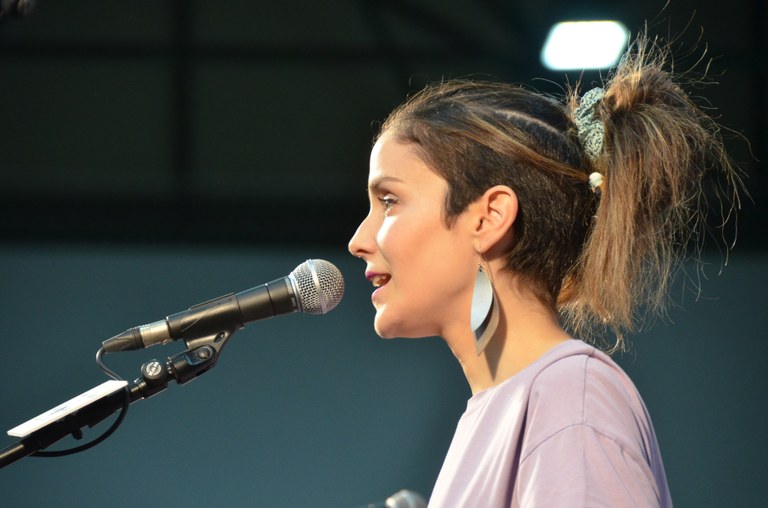Oier Iurramendi will be the general coordinator of Euskal Herriko Bertsozale Elkartea
- This year we have a year of restructuring in Bertsozale Elkartea: in March, with the renewal of the presidential team, the partners decided to create a coordinating post in the General Assembly. Oier Iurramendi Etxeberria (Donostia-San Sebastián, 1990) has just reached that position, but he is not the new member of the association. Member of the Bertso-eskola de Hernani, the promotion has been his area of work and so he took his first step in Bertsozale Elkartea: Since 2019 he has been a promoter of the Bertsozale Elkartea association.

How did you take your new job?
With enthusiasm and thanks, but also with responsibility. I came to the partnership in 2019 for promotion. But for two years now, when we decided to coordinate in a group, I have combined the coordination and promotion responsibilities. This post is therefore not entirely new to me. But the partnership is much more extensive. It is a project of great volume and life of its own. I face this new collective role with great responsibility, strength and commitment.
What was your trajectory in Bertsozale Elkartea?
I come from the promotion, because before entering the association I already placed myself in that, within the dynamics of the bertsolaris school of Hernani, in the organization of the sessions of the teachers and the people. In 2019, three months after entering the partnership, the pandemic came and the Association’s advocacy department had to change course from day to day. During the pandemic we had to become agents of the plaza; for me it was something new, but also for the association. In these two years of a pandemic, we had to learn how to adapt quickly.
In that context, we spent a couple of years and then came the Bertsolaris Championship, my first championship as a promotion engine. It was in that whirlwind that I spent my first three years. Although in the Association I have made five years of promotion, it has been five special years.
In these five years, in addition to the competition, my forces have focused a great deal on the observation and analysis of the plaza and on the revitalization of the plaza after the pandemic: in an area that we have not so far worked so hard.
And from now on, what will their functions be?
The Association is a project with its own dynamics and with its own organization to respond to it. My role will be to work for that skeleton to work. Ours is a great partnership: there are a lot of people, objectives, ideology, reality, experiences… and I think trust and empathy are key. Above all, I would define it as a work of packing and gear of all the pieces. Keep an eye on the balance between the project and the operation of the partnership.
One function linked to this post is also that of external relations. In these two years when we have been without a coordinator, we have noticed the absence of the reference person on some specific issues.
What will your job be working on in the internal functioning of the partnership?
As I have already mentioned, the Bertsozale Elkartea Association has a well-established dynamic. Proof of this is that the post I am about to occupy has been vacant for the last two years and the partnership has worked. Previously, this function was performed by one person, then two, and then we decided to respond in a group. It was the group itself that represented the work done so far by the coordinator. The people who have worked in this group, without abandoning the tasks of our department, have also carried out coordination tasks.
But, despite the fact that the structure has worked, over the past two years we have noticed a gap in some specific functions: we have done our work, we have had the dedication to responding to the coordination functions of the partnership, but we felt the need for a person who was aware of the medium- and long-term challenges. Many times our job is to respond to the challenges we face from day to day and, precisely, the coordination post allows us to take a look at everyday work and focus on the next steps. That is why, from the outset, we feel the need for a person who is alone in coordinating tasks.
We are aware that the organization or structure of a cultural association of this magnitude has many complexities to position ourselves in a society that moves very rapidly. And, therefore, bringing group coordination has meant a great vision and a great vision riqueza.Por so, even though I assume this responsibility, the coordination team will continue to work.
What are the lines of work of the Association?
It is a partnership, but with many arms and a great organizational dimension. It has an ambitious cultural project that is divided into departments (Research, Xenpelar Documentation Center, Promotion, Communication, Dissemination, Education, Lanku…) and countries, and is in permanent collaboration with the agents of the environment. We have a basis to respond to our cultural project, which arises from the process of reflection carried out in 2018 among 220 people, and one of the most important decisions that were made is to cross the entire project in three transversal lines: feminisms, interterritorial and intergenerational.
"Although our project is Basque, the decisions we make do not have the same influence everywhere, but it is very important that the base be shared"
On the other hand, I believe that the Bertsozale Elkartea Association needs constant reflection, dialogue and debate. Although our project is Basque, the decisions we make do not have the same influence in all places, but it is very important that the base be shared. Not all places and regions follow the same logic, and much work needs to be done to land. It's like a telescope, and depending on the zoom, you find different things. And they're all important.
That requires a great internal organization. To take any project out into the street, we have to do a great job internally: we need a consensual base, but then each project can have a different way of developing it and the result can be different.
And at the core of our project are the bertso-eskolas, the voluntary and the creative, and there's an entire community. It is our responsibility to take care of them. For example, when we talk about bertsolaris, we're naming a very large group, and not everyone needs them. There are bertsolaris who have the same trade in creation; there are bertsolaris who do not have the trade, but who are part of their professional career; or others who use it for leisure.
And another of our lines of work is the care and maintenance of bertso-eskolas and volunteers. After all, when we talk about the health of Bertsolaris, we measure it according to the results. But these results are the result of tremendous and invisible work by the bertso-eskolas and the volunteers. Thanks to the good work they have done in recent years, we have the current situation and we cannot lose sight of it, as their contributions lay the foundation for the future.
What are the challenges for the coming years?
As I mentioned, in 2018 the foundations were laid for the next 12 years. It's been 6 years since then, it's a good time to value what we've done and work on what we need to do.
Today, I see one of the challenges to be faced in order to adapt to the speed at which society moves. I believe that our environment is moving faster than ever before, and that Bertsolarism, culture and Euskera are challenging some of the foundations it needs. For example: the situation the Basque country is experiencing, the trends of youth generations, consumption habits, the development of technology, globalization… How can we place in this situation a cultural expression in Basque with its special forms and tempos? We must concentrate on developing rapid reaction capability. You start to notice some changes, some alarms start to ignite, and one of our challenges is to know where to place our partnership and our project.
On the other hand, I believe that another important challenge is to seek the balance between the cultural project and the structural necessity. To do a good outdoor job, the interior has to be well-geared, and that requires incredible work and dedication. This isn't seen many times from the outside, but things don't come alone.
And I think it's another piece of work that corresponds to the partnership listening to all the voices that are in the world of bertso. Then in practice it has to take a base and a course, and that means taking a position on some issues, otherwise we cannot move forward.
At what point is Bertsolarism at the moment?
Bertsolarism has gone through different phases in the last decades, the best known is the tremendous boom of the 1990s, in which the association itself also emerged. Looking at the plaza, Bertsolarism grew a lot. Another step was the stabilisation of this increase (2010-2020). The main change was the integration of feminism. It influenced the nature of the plaza more than the number of places: other people, other names, speeches, other bodies were introduced.
"Social concerns also affect us: attacks on Euskera, for example"
The advent of the pandemic caused a discipline that was going on almost on its own, and that we thought was strong, to become fragile. We have been in a convulsive situation for two years and with the end of the pandemic we have seen that we are recovering that place. But for me, we're now at a very interesting time, because we don't know when we're at. It's always easier to talk about the past, but it's really hard to know when we're at.
It's a very interesting moment for me, because we've recovered our site, but there can be someone who can question something. Analyzing the moment itself, the number of bertsolaris seats is good, there are people in the plazas, the audience of the championship rises, the television hearings have increased… The health of the moment is good, but at the same time, there is something that asks us to be prudent for the coming years. And I think that behind that is the fact that social concerns also influence us: for example, aggression against Euskera. This has a direct influence on Bertsolarism: although we have not yet perceived the reasons why we have the Basque Country and the consequences, we have to prepare for it. We have to start to react almost before we begin to suffer the consequences.
Maiatzaren 8an hasiko da Bizkaiko Bertsolari Txapelketako sailkapen fasea. Zortzi saio bikoitz jokatuko dira maiatzeko eguenetan. Sarrerak eskuragai daude bertsosarrerak.eus atarian.
Asteburu honetan hasiko da Gaztetxeak Bertsotan egitasmo berria, Itsasun, eta zazpi kanporaketa izango ditu Euskal Herriko ondorengo hauetan: Hernanin, Mutrikun, Altsasun, Bilboko 7katun eta Gasteizen. Iragartzeko dago oraindik finala. Sariketa berezia izango da: 24 gaztez... [+]
Vagina Shadow(iko)
Group: The Mud Flowers.
The actors: Araitz Katarain, Janire Arrizabalaga and Izaro Bilbao.
Directed by: by Iraitz Lizarraga.
When: February 2nd.
In which: In the Usurbil Fire Room.
In recent years, I have made little progress. I have said it many times, I know, but just in case. Today I attended a bertsos session. “I wish you a lot.” Yes, that is why I have warned that I leave little, I assume that you are attending many cultural events, and that you... [+]



